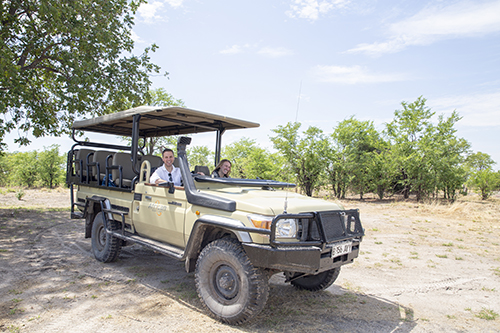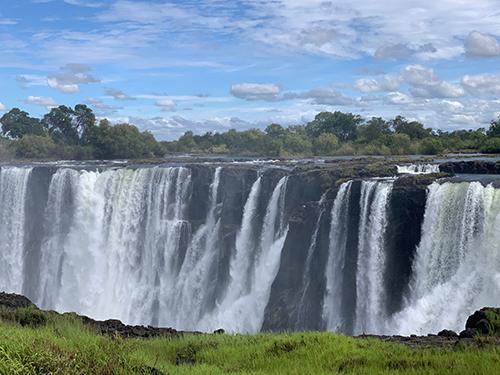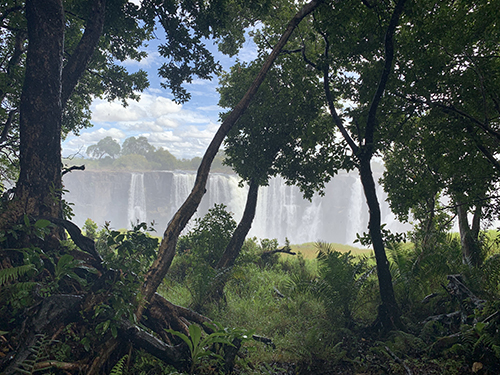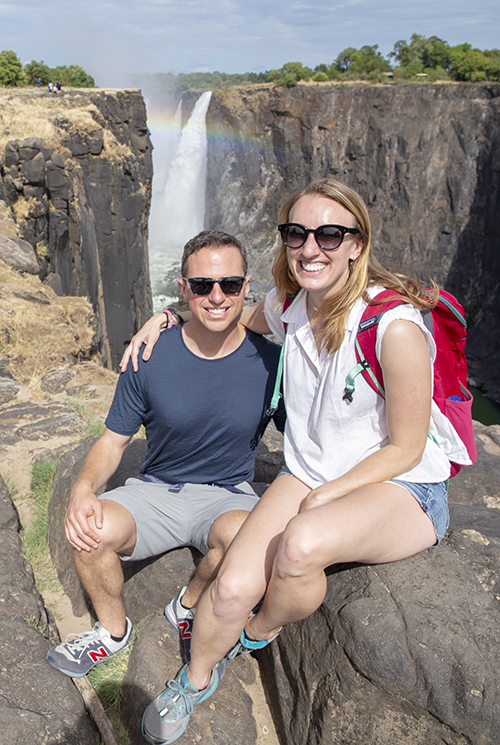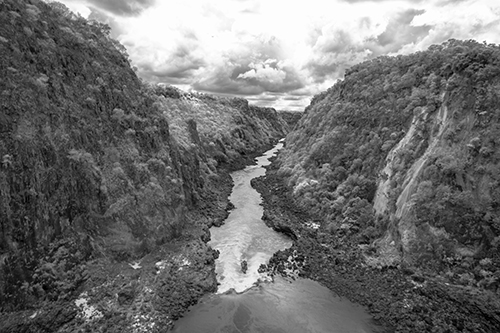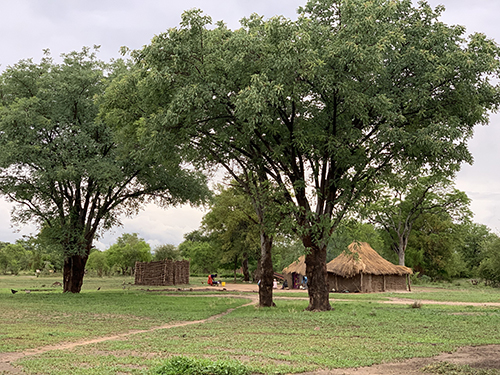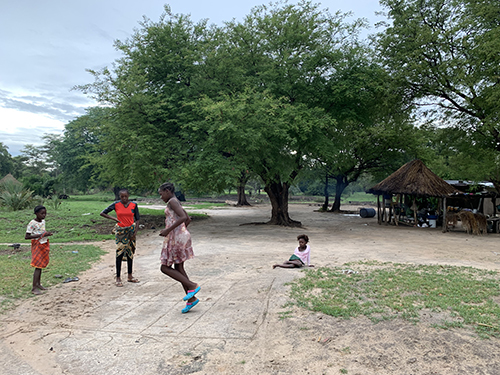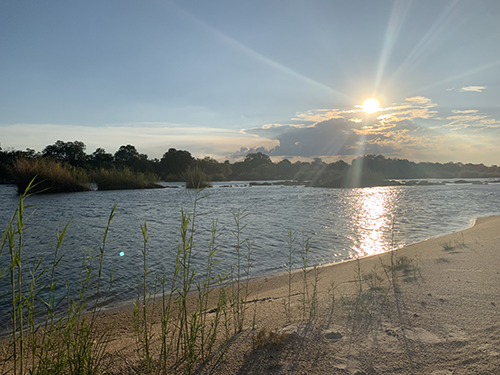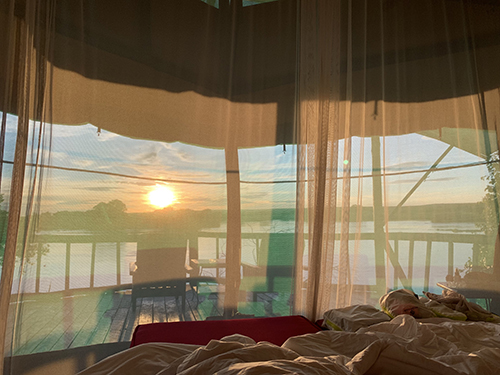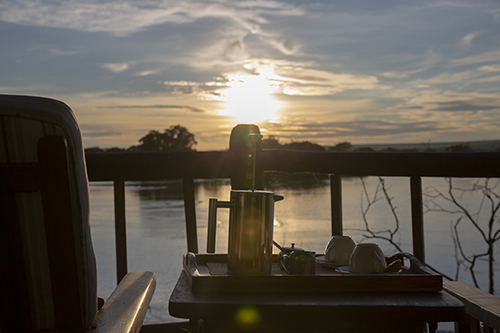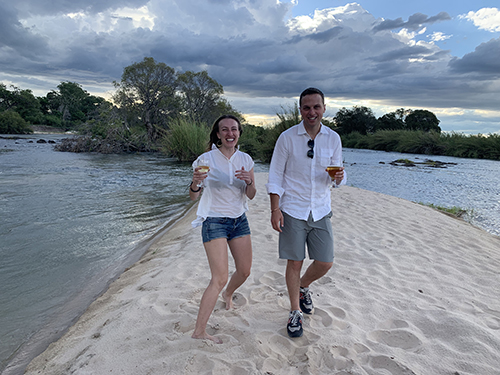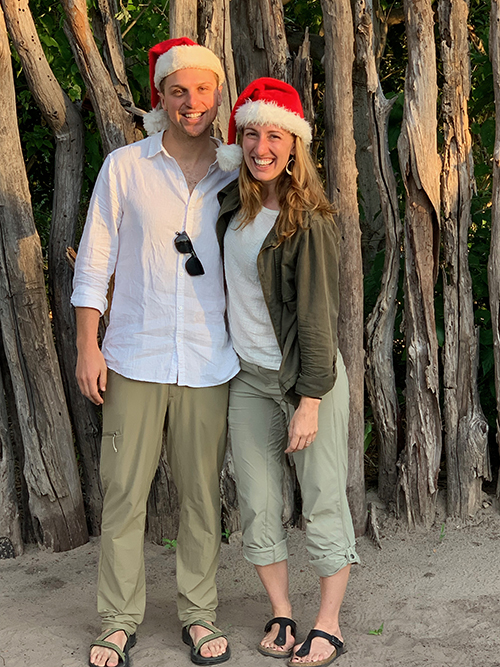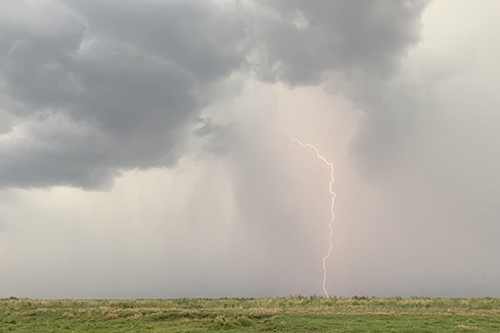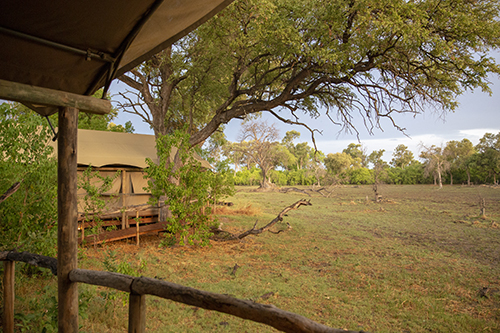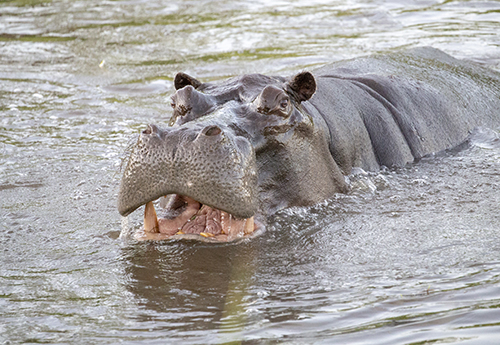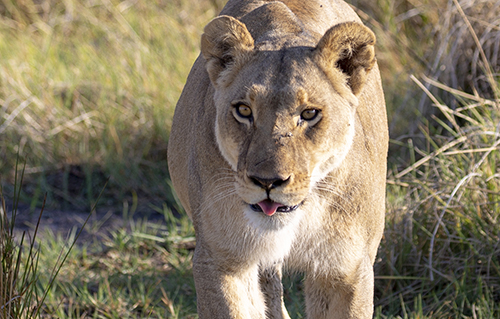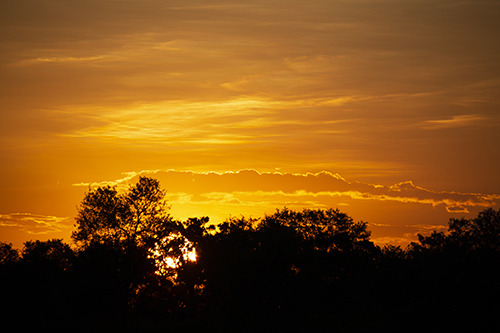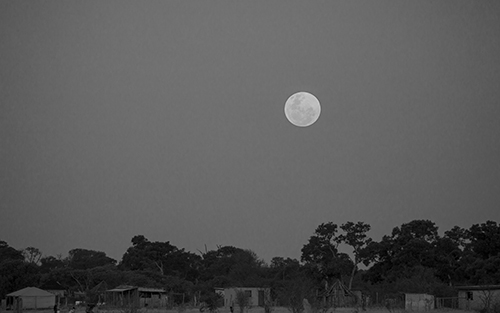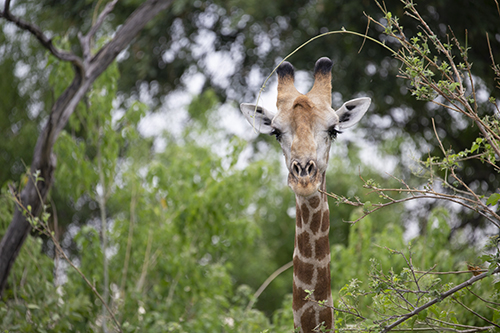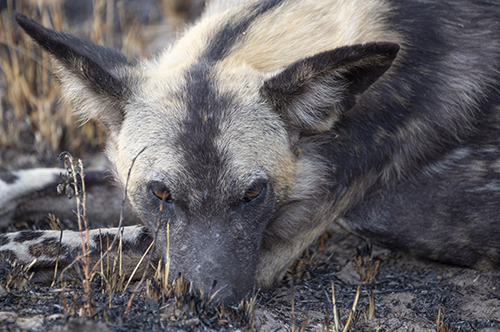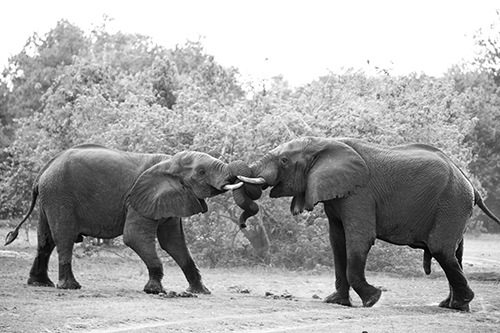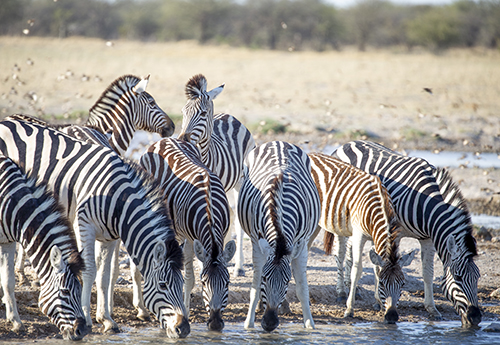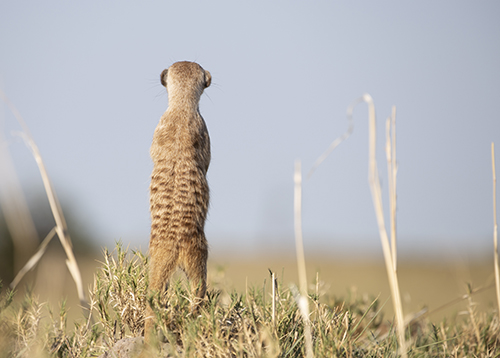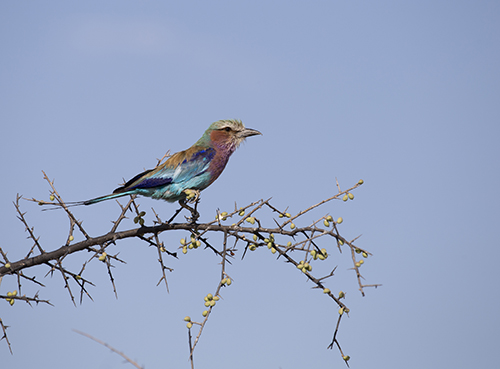Linyanti is as different to Khwai as Khwai is to the Kalahari. We arrive by plane, but instead of our typical 10-minute drive to camp, we drive an hour deep into the bush. There are only two camps here, each with six tents, and the nearest village is over 2-hours away. We’re on the edge of the Botswana border; You can see Namibia in the distance. The land is a mix of deep brush and wetlands, and subsequently the first place where we encounter real bugs.



This place makes Moremi feel like a zoo. Here, the animals act as they would in nature, scurrying away as soon they’re seen. The hippos had a field day when we set up for our sun downers outside their water hole, snorting at us, showing us their teeth, yelling to say that we best be advised not to come any closer. Joe, our guide in this last safari camp, assures Andrew that they’re territorial only about the water, so brings Andrew around for a better view of sunset. Hippos are the second most dangerous animal in Africa, behind malaria spreading mosquitos, and they continue to show us why as their eyes follow, mouths open, giant bodies emerging.

The elephants here appear not in groups of three, but groups of thirty. When it’s dry, they walk past the truck in droves, slowly marching their way to the marshland. The baboons travel in groups even larger, and hysterically think that if they can’t see you, you can’t see them. They’ll run away from the truck by hiding behind a tree, body in plain sight, slowly peeking glances back at you. Giraffes are surprisingly difficult to spot, considering their size, but when you do they look straight at you, a contrast to the baboons.


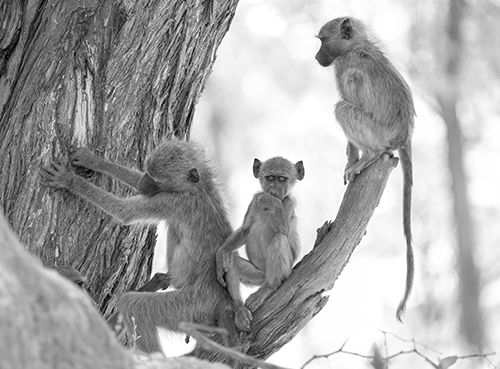


We are in the middle of nowhere, no wifi, eaten by bugs and surrounded by wild animals, and yet we’ve never felt safer. The bush, we decide, is our paradise – a feeling as much as a place.
